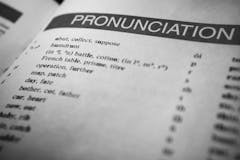ACCUPLACER Reading Comprehension Test – Guide for 2025
All products and services featured are independently selected by WikiJob. When you register or purchase through links on this page, we may earn a commission.
- ACCUPLACER Reading Comprehension Study Guide
- What Is The ACCUPLACER Reading Comprehension Test?
empty
empty
- What's Included in the ACCUPLACER Reading Comprehension Test?
empty
empty
empty
empty
- Example Questions for the ACCUPLACER Reading Comprehension Test
- Complete Reading ACCUPLACER Practice Tests
- Frequently Asked Questions
- Final Thoughts
The ACCUPLACER Reading Comprehension Test is a crucial evaluation of an individual's reading skills and comprehension abilities.
This computer-adaptive test consists of 20 questions designed to assess your proficiency in understanding written content.
It plays a vital role in determining a student's placement within a school or college, guiding educators in placing students in appropriate courses that align with their reading skills.
For information on how the Accuplacer Test is scored, read our dedicated article.
ACCUPLACER Reading Comprehension Study Guide
This comprehensive guide will walk you through everything you need to know about this important assessment, from its format to sample questions and preparation tips.
Whether you're aiming for advanced placement or just want to ensure you're adequately prepared, read on to master the ACCUPLACER Reading Comprehension Test.
ACCUPLACER Reading Comprehension Practice Test with TestPrepOnline
What Is The ACCUPLACER Reading Comprehension Test?
The ACCUPLACER Reading Comprehension Test is a critical component of the ACCUPLACER suite of exams, designed to assess a candidate's reading skills and comprehension abilities.
This computer-adaptive test consists of 20 questions, each meticulously crafted to gauge a student's proficiency in understanding written content.
While the test is an essential part of the college or school placement process, it's important to note that it does not serve as a barrier to entry.
Admission to your chosen institution should already have been granted based on other criteria.
The ACCUPLACER Reading Comprehension Test operates without a time limit, so candidates are not constrained by the time pressure while working through the questions.
Instead, they can focus on comprehending the content thoroughly and providing accurate responses.
However, most candidates finish the test within 15 minutes.
Computer-Adaptive Nature
The term “computer-adaptive” refers to the dynamic nature of the test.
Unlike traditional paper-and-pencil exams, where all test-takers answer the same set of questions, computer-adaptive tests adjust the difficulty level of questions based on the test-taker's previous responses.
In the case of the ACCUPLACER Reading Comprehension Test, if a student performs well on a question, the subsequent question may be more challenging.
Conversely, if a question is answered incorrectly, the following question may be less difficult. This adaptive approach helps to precisely evaluate a student's skill level.
Placement Determination
While the ACCUPLACER Reading Comprehension Test doesn't serve as a gatekeeper for college or school admission, it plays a pivotal role in determining a student's placement within the school.
The results guide educators in placing students in courses that align with their reading skills.
A strong performance on this test can lead to placement in advanced classes, providing an opportunity for academic enrichment.
This personalized approach to education can significantly contribute to a student's success in their academic journey.
What's Included in the ACCUPLACER Reading Comprehension Test?
The ACCUPLACER Reading Comprehension Test encompasses various components that aim to evaluate your proficiency in reading and comprehending written content.
It is essential to have a clear understanding of what these components entail to perform well on the test.
These are the key areas covered by the ACCUPLACER Reading Comprehension Test:
1. Information and Ideas
This segment assesses your ability to extract essential information from written passages.
Test-takers are required to identify the main ideas, themes and the central message conveyed by a text.
It evaluates your aptitude for summarizing a given passage effectively.
You'll be expected to recognize various relationships within the text, such as cause-and-effect relationships or comparisons.
2. Rhetoric
In this section, the focus shifts towards analyzing the author's use of language and rhetoric within the text.
This includes evaluating word choice, text structure, the author's point of view, purpose and persuasive arguments.
You'll need to identify the author's techniques for conveying ideas and emotions through language.
3. Synthesis
Synthesis is a crucial skill in reading comprehension. This part of the test examines your ability to analyze, compare and contrast information from multiple passages.
You might be presented with several texts or viewpoints and asked to draw connections between them or evaluate their similarities and differences.
4. Vocabulary
Vocabulary comprehension is fundamental to understanding written material.
The test includes vocabulary-related questions, requiring you to deduce the meanings of words or phrases from the passage's context.
This assesses your ability to decipher unfamiliar terms based on the surrounding text.
The ACCUPLACER Reading Comprehension Test aims to measure not only your capacity to understand the explicit content of a text but also your ability to analyze, infer and make connections within and between different texts.
To excel in the test, it's essential to practice reading and interpreting a wide range of texts, develop your vocabulary, and refine your analytical and critical thinking abilities.
Familiarizing yourself with different types of passages, text structures, and rhetorical devices will better prepare you for the challenges posed by the ACCUPLACER Reading Comprehension Test.
Example Questions for the ACCUPLACER Reading Comprehension Test
The practice questions below are intended to illustrate the format of ACCUPLACER reading comprehension test questions and provide an idea of the content you can anticipate.
These questions are not from previous tests and are unlikely to be identical to those you'll encounter on your accuplacer reading placement test .
’Recent scientific studies have shown a rise in global temperatures, leading to more extreme weather events. Climate experts agree that human activities, such as burning fossil fuels, contribute significantly to these changes’.
What is the connection between these statements?
a) They are unrelated
b) They conflict with each other
c) They draw a comparison
d) They propose solutions and problems
‘Exploring the depths of the ocean remains a captivating adventure for many scientists, with new discoveries constantly emerging. Yet, the ocean's mysteries are often accompanied by unforeseen challenges, like extreme pressure and the need for specialized equipment. Some explorers even risk their lives in pursuit of these enigmatic discoveries. Despite the allure, perhaps it's safer to admire the ocean's wonders from the shore’.
This passage suggests that the writer views ocean exploration as:
a) An educational and enriching endeavor
b) The ultimate thrill-seeking activity
c) Superior to other scientific pursuits
d) Not without its dangers

‘The latest superhero movie franchise has taken the world by storm, receiving praise from fans and critics alike. To the surprise of some, it has also sparked debates on societal values and the impact of such films on youth’.
From the passage, which of these expressions indicates unexpected consequences?
a) Taken the world by storm
b) Receiving praise
c) To the surprise of some
d) Impact on youth
‘In recent years, online education has gained popularity as a flexible and accessible learning option, with many students opting for virtual classrooms. However, it also presents challenges such as self-discipline and the absence of face-to-face interaction’.
What does the passage suggest could be a drawback of online education?
a) Lack of popularity
b) Flexibility and accessibility
c) Self-discipline and interaction issues
d) Ineffectiveness as a learning option
What relationship can be inferred between these two statements?
‘In well-funded schools, students tend to excel academically due to smaller class sizes and ample resources. Even in underfunded schools, some students manage to thrive academically, defying the odds’.
a) They directly oppose each other
b) They convey identical messages
c) They highlight similar educational challenges
d) They offer differing solutions to educational problems
If you want 12-month access to all the practice resources for this test, our partner TestPrep-Online.com offers a Family Membership.
Family Membership gives you access to all the TestPrep-Online resources for the next 12 months. You will also get two separate accounts, which can be very helpful if you have two children preparing for their tests.
Get a Family Membership with 12-Month Access.
Complete Reading ACCUPLACER Practice Tests
One of the most effective ways to prepare is by taking reading ACCUPLACER practice tests online.
These tests are designed to simulate the actual exam experience, familiarizing you with the format and types of questions you'll encounter.
This will familiarize you with the test's format and the types of questions you'll encounter.
You can find free accuplacer reading comprehension practice tests on various websites, including the official ACCUPLACER website and TestPrep-Online.
You can even find free reading ACCUPLACER practice tests online. By working through these practice tests, you can gain confidence and become acquainted with the question patterns.
Step 1. Revise Basic Reading Practices
Since the ACCUPLACER Reading Test evaluates your reading skills, developing and refining those skills is essential.
Here's what you can do:
- Read a wide range of books and publications.
- While reading, highlight sentences, phrases or words you don't understand and look up their meanings.
- After reading, write book reviews to enhance your analytical skills. Identify intentions, arguments, characters and settings in the materials you've read.
- Practice analyzing the purpose or intention of writers or speakers when encountering informational passages or speeches. Look for possible counterarguments.
- The more you read and review, the better equipped you'll be to analyze passages effectively.
Step 2. Invest in a Paid Preparation Pack
If you feel the need for additional support in enhancing your reading skills, consider investing in a paid ACCUPLACER Reading Comprehension study guide.
These comprehensive study packs typically provide in-depth information about the test, numerous ACCUPLACER practice reading tests, and detailed solutions.
The extra guidance and insights from these resources can significantly contribute to your preparation.
Step 3. Decide if You Need the ACCUPLACER ESL Version
The ACCUPLACER also offers an ESL (English as a Second Language) reading skills test, which assesses the same skills as the standard test but uses different texts and passages.
Depending on your language proficiency, you may benefit from taking this version.
To make an informed decision, complete an ACCUPLACER ESL reading practice test to evaluate your eligibility and readiness for this version.
Step 4. Check Computer Equipment or Directions to the Testing Location
If you plan to take the ACCUPLACER Reading Test remotely, ensure your computer or device is compatible with the ACCUPLACER program and that all your technology is in proper working order.
Opt for a testing environment with a strong and reliable internet connection to minimize disruptions.
For those taking the test at an assessment center, thoroughly review the directions and plan your route ahead of time to ensure you arrive in good time.
Step 5. Take Care of Yourself
Your physical and mental well-being can significantly impact your test performance.
The night before the test, prioritize getting sufficient rest. Staying well-hydrated and consuming a nutritious meal is essential, as dehydration and poor nutrition can impair your thinking and reaction abilities.
Ensuring you are in optimal physical and mental condition will maximize your readiness on test day.
One task that students are required to do on the reading comprehension section of ACCUPLACER is to analyze and understand various elements of a given text.
This includes identifying main ideas and themes, summarizing the passage and comprehending the relationships between different pieces of information.
Students must also analyze the author's word choice, text structure, points of view, purpose, and arguments.
Additionally, the section may include tasks related to synthesizing information from multiple passages and assessing vocabulary comprehension.
The ACCUPLACER Reading Comprehension Test consists of 20 questions.
To perform your best, start by practicing with sample questions and taking practice tests to become familiar with the test format and types of questions asked.
The test is untimed, allowing you to focus on the questions and provide well-thought-out answers without the pressure of a time constraint. However, the majority of candidates complete the test within 15 minutes.
To prepare effectively for the ACCUPLACER reading test, start with practice tests to understand the question format.
Focus on improving your reading skills, expanding your vocabulary, and reviewing similar sample questions.
Additionally, consider investing in an ACCUPLACER reading comprehension study guide or paid preparation packs if you need extra support.
Yes, you can usually retake the ACCUPLACER reading comprehension test. However, retake policies may vary depending on your institution. Check with your school or college's testing center for specific retake guidelines.
Most institutions allow multiple attempts to help students achieve their desired placement.
Final Thoughts
The ACCUPLACER Reading Comprehension Test is a critical assessment of an individual's ability to understand and analyze written text.
Proper preparation is essential for achieving the best possible results and securing your desired placement level.
In this guide, we've explored the key elements of the test, preparation strategies, and the significance of adequate rest and self-care.
Completing practice tests, engaging in regular reading, and reviewing your performance can boost your confidence and sharpen your reading skills.
You can also tailor your preparation to address specific weaknesses by identifying areas where you may need improvement.
Your performance on the ACCUPLACER Reading Test can impact your academic journey.
With dedication, practice, and thoughtful preparation, you can successfully navigate the ACCUPLACER Reading Test and place yourself on the path to academic achievement.





